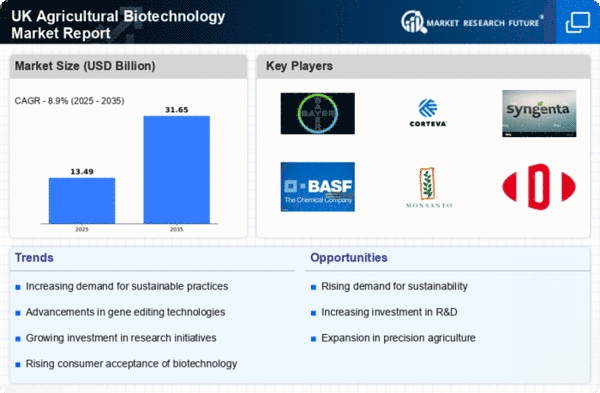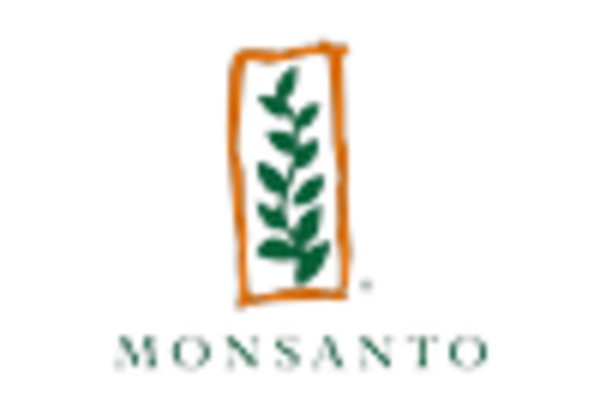Rising Food Security Challenges
Food security remains a pressing issue in the UK, with the agricultural biotechnology market poised to address these challenges effectively. The increasing population and changing dietary preferences are putting pressure on food production systems. Biotechnology can enhance food production efficiency, potentially increasing yields by 15-25% through the development of high-yielding crop varieties. Moreover, the agricultural biotechnology market is likely to contribute to reducing food waste by improving the shelf life and resilience of produce. As the UK seeks to ensure a stable food supply, the role of biotechnology in enhancing food security is becoming increasingly critical.
Government Support and Policy Frameworks
Supportive government policies and frameworks are benefiting the agricultural biotechnology market by fostering innovation. The UK government has recognized the potential of biotechnology in enhancing agricultural productivity and sustainability. Initiatives such as funding for research and development, as well as streamlined regulatory processes, are encouraging investment in this sector. The agricultural biotechnology market is likely to see increased collaboration between public and private sectors, which could lead to the commercialization of new biotechnological solutions. This supportive environment is essential for driving growth and ensuring that the UK remains competitive in the global agricultural landscape.
Sustainability and Environmental Concerns
Sustainability is a driving force behind the agricultural biotechnology market, as consumers and policymakers alike are increasingly focused on environmentally friendly practices. The UK government has set ambitious targets for reducing greenhouse gas emissions, and biotechnology offers solutions that align with these goals. For instance, genetically modified crops can reduce the need for chemical pesticides, leading to lower environmental contamination. The agricultural biotechnology market is expected to play a pivotal role in achieving sustainable agricultural practices, potentially reducing the carbon footprint of farming by up to 30% in the coming years. This shift towards sustainability is likely to attract investment and support from various stakeholders.
Consumer Demand for Enhanced Food Products
Consumer preferences are evolving, with a growing demand for enhanced food products that offer health benefits and improved quality. The agricultural biotechnology market is responding to this trend by developing crops with enhanced nutritional profiles, such as biofortified grains and fruits. In the UK, surveys indicate that over 60% of consumers are willing to pay a premium for food products that are perceived as healthier or more sustainable. This shift in consumer behavior is likely to drive innovation within the agricultural biotechnology market, as companies strive to meet these demands while ensuring compliance with safety and regulatory standards.
Technological Advancements in Crop Genetics
The agricultural biotechnology market is experiencing a surge in technological advancements, particularly in crop genetics. Innovations such as CRISPR and gene editing are enabling the development of crops that are more resilient to pests and diseases. In the UK, the adoption of these technologies is projected to enhance crop yields by up to 20% over the next decade. This increase in productivity is crucial for meeting the growing food demand while minimizing environmental impact. Furthermore, the agricultural biotechnology market is likely to benefit from improved traits such as drought resistance and enhanced nutritional profiles, which are becoming increasingly important in the context of climate change and food security.
















